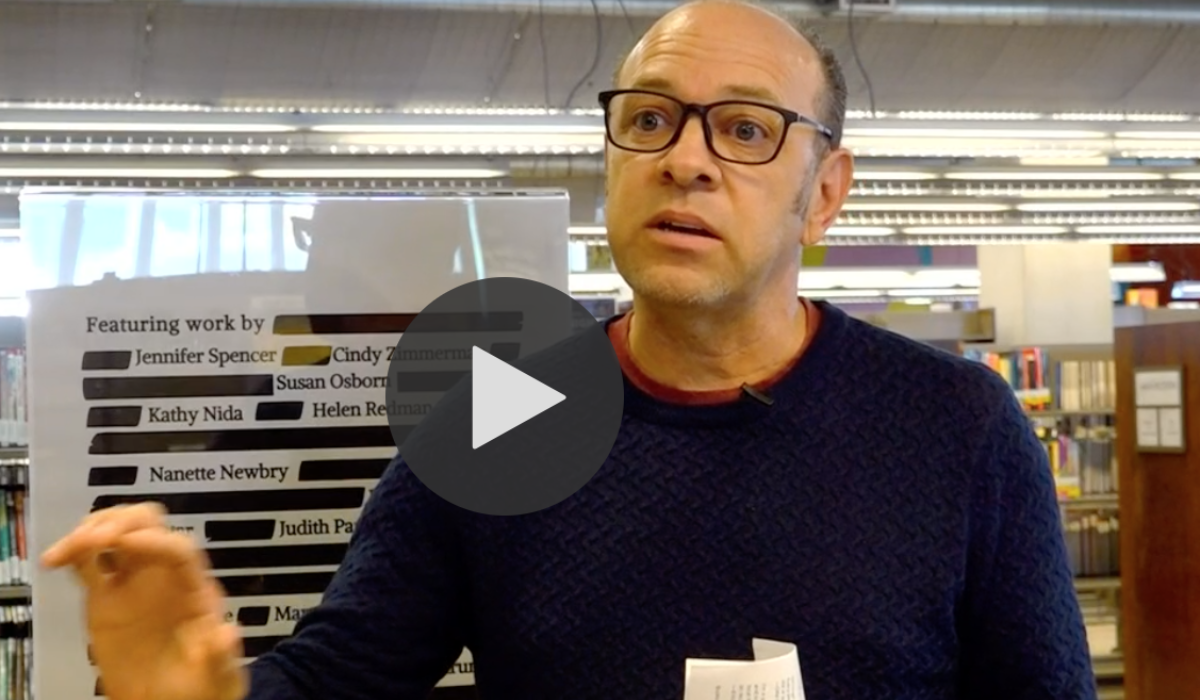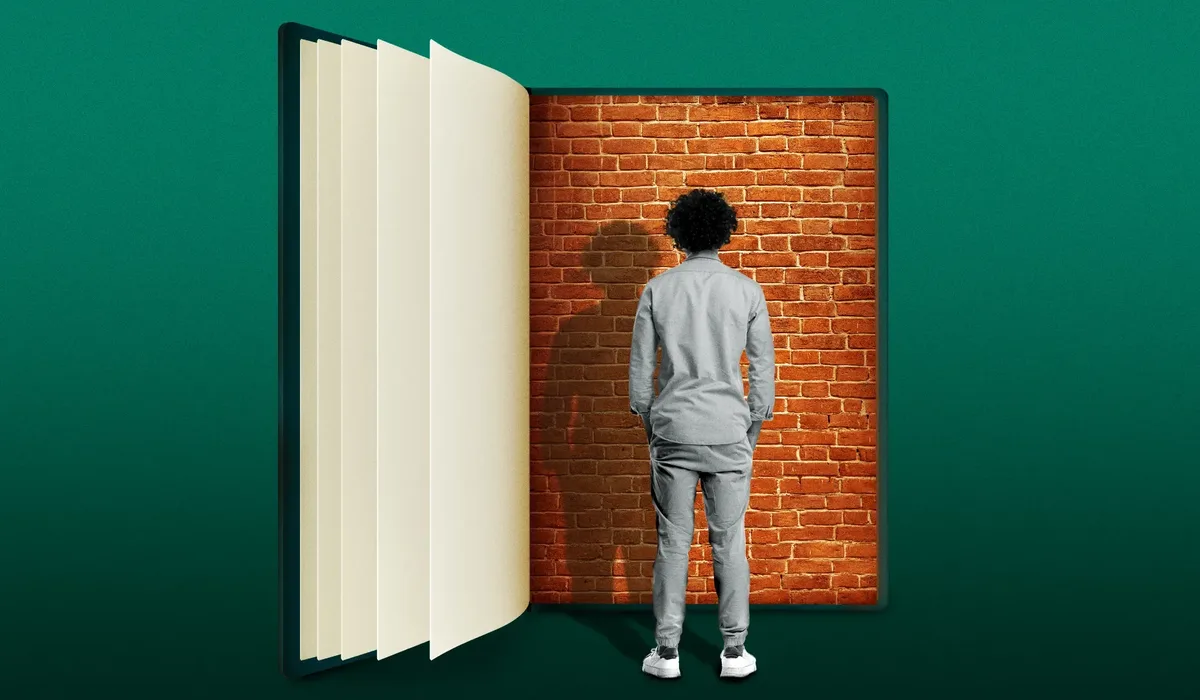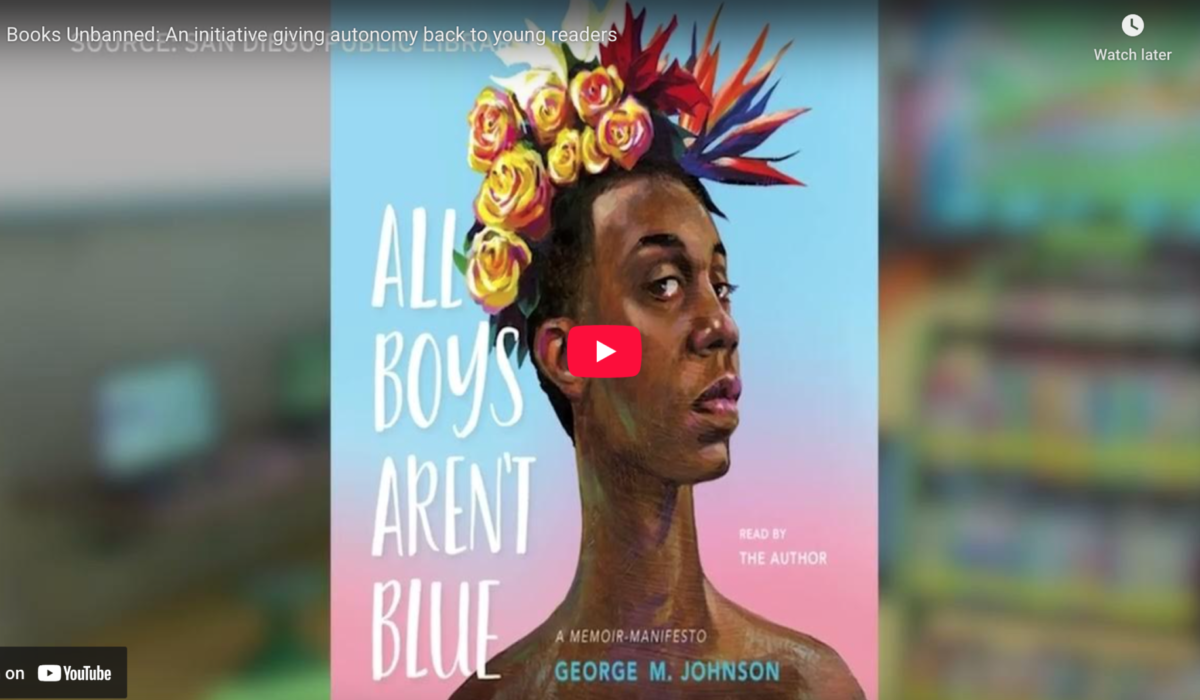Libraries are, at their core, a place for everyone.
It doesn’t matter who you are, where you live, or what you do for a living. A library is a place where you can enrich your mind, access resources, and find community.
This accessibility is central to the role that libraries fulfill in their communities. And it’s precisely why we must protect this access to materials, resources, and libraries themselves when they come under attack.
In 2023, the number of books challenged on library shelves surged 65% year-over-year, reaching a record high of 4,240 unique book titles. These book challenges are especially pertinent during Pride Month, since titles representing LGBTQIA+ or BIPOC voices made up nearly half of all those targeted in censorship attempts, according to the American Library Association.
These challenges have even been linked to violence and threats against library staff members – especially if those librarians and staff members are part of the LGBTQIA+ community.
Although states like Texas, Florida, and Tennessee often see the most book challenges, progressive states like California aren’t immune to attacks on intellectual freedom. Just last year, we saw a coordinated effort to restrict access to LGBTQIA+ titles in a Pride display at the Rancho Peñasquitos Branch Library. But, more on that later.

Raquel ITA at a June Pride story time at the Kensington Library.
Books Unbanned
These increasingly aggressive and coordinated assaults on libraries drove us to join the Books Unbanned initiative last year. Books Unbanned, started by our friends at the Brooklyn Public Library, is a program that allows us to increase access to digital copies of frequently challenged books to young readers across the U.S.
Since launching our local version of Books Unbanned in October 2023, we have helped more than 1,900 people sign up for digital Books Unbanned library cards. And the response from people, especially in states where book challenges are most common, has been incredibly inspiring to us.
“As a young queer person in rural Texas, I find that books by and about people like me are lacking in local libraries. This card offers me the opportunity to access books I might not otherwise be able to find.”
“I live in a deep red state where access to queer books, anti-racist books, and other controversial books is a privilege not at all ensured. As a queer disabled person, access to books, especially ebooks, is essential.”
One cardholder in Georgia wrote, “Being a black teen of Haitian descent, my yearning to delve into the rich tapestry of my heritage is insatiable,” said one reader from Georgia. “I am eager to explore literature that unveils the untold narratives of individuals who share similar cultural and ancestral backgrounds. This eCard is not merely a pass to virtual books; it is a key to unlocking a treasure trove of wisdom, history, and tales that resonate with my identity.”
Even more incredibly, our participation in Books Unbanned has been made possible solely through the generosity of Library Foundation SD supporters.
Representation matters
For young readers, being able to see themselves in the stories they read can be life-changing. Representation matters, and if young people only see library shelves devoid of voices that sound like theirs, they will inevitably grow up feeling like they don’t belong.
More than that, a well-functioning democracy must be welcoming to all members of its community. Celebrating the diversity of our communities is key to fighting ignorance and hatred, and fostering empathy for all.
The diversity of ideas, opinions, and identities in our communities should be celebrated – not stamped out or hidden away. Protecting access to diverse titles at public libraries is a crucial part of protecting intellectual freedom.
One Books Unbanned reader in New Jersey summed it up incredibly well: “Ignorance is not bliss, but it is a powerful tool for controlling other people, as history has proven again and again. I believe the human spirit and intellectual curiosity should be celebrated, not persecuted, shamed, or threatened.”
Defending the right to read, always
At Library Foundation SD, we are unapologetic about defending the right to read. Intellectual freedom is a cornerstone of democracy, which is why banning books is often the first tool that authoritarians use in any descent into tyranny. Just read Isabel Wilkerson’s exceptional book, “Caste: The Origins of Our Discontents,” and you’ll see the clear pattern.
We cannot allow any person or group to be the arbiters of the ideas that others are allowed to explore. This is especially true when the ideas and voices being stifled belong to already marginalized communities.
We’re not going to stop making challenged books accessible to young readers across the country. We are going to resist book bans and challenges however we can. And, we’re going to condemn any threats of violence against libraries and library staff members, always.
We know the community is on our side, too. Last year, when someone tried to restrict access to LGBTQIA+ materials at a library branch in Rancho Peñasquitos, support began pouring in from people all across San Diego. Dozens of donors came together to help rebuild what was restricted – and even grow the library’s collection.
If you’d like to join us in our fight to protect intellectual freedom and libraries, you can take action:
- Read banned books,
- Get your own Books Unbanned card,
- Thank your library staff for protecting intellectual freedom,
- Advocate for your library, and, if you are able,
- Contribute to your local library foundation.


